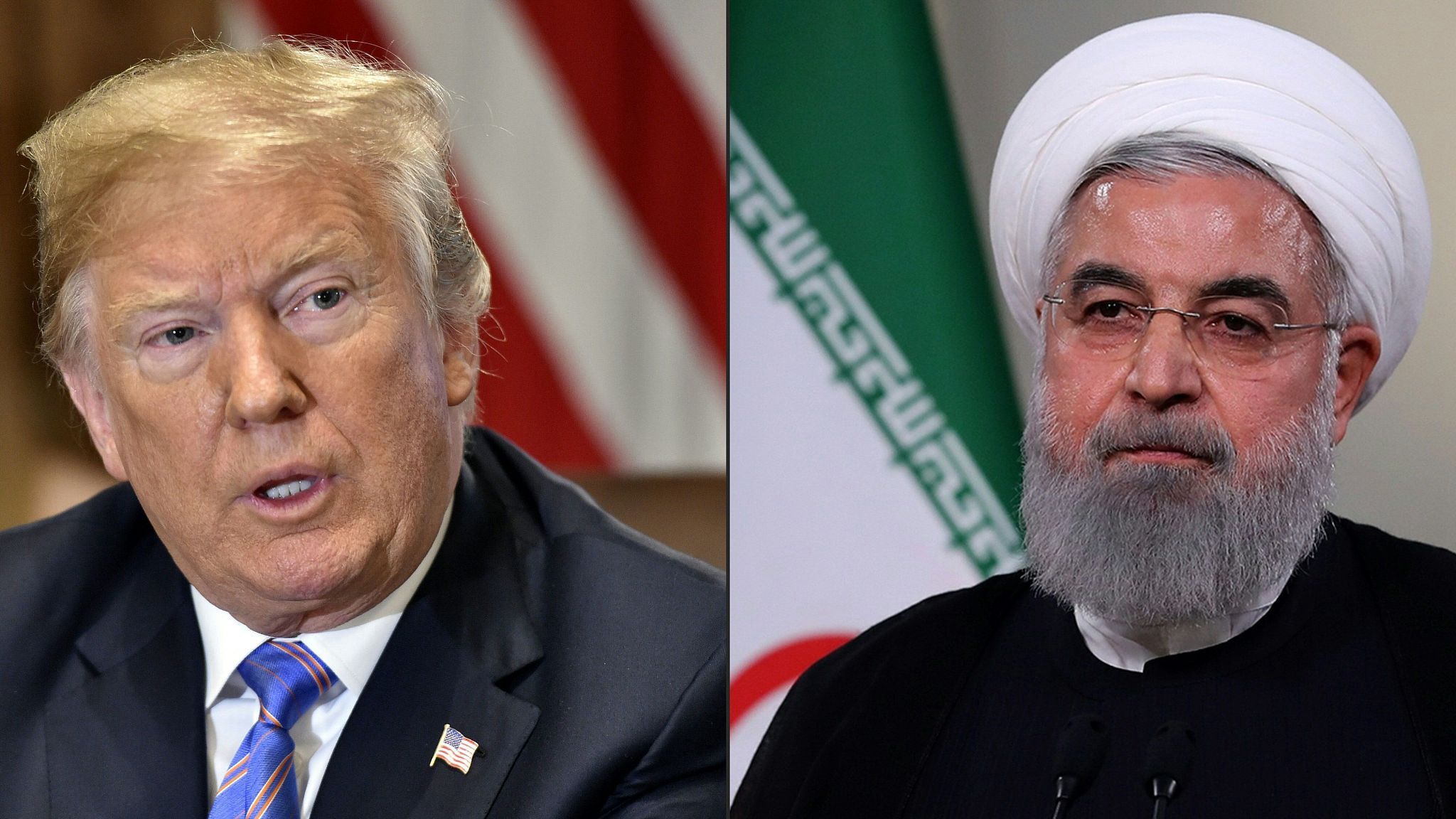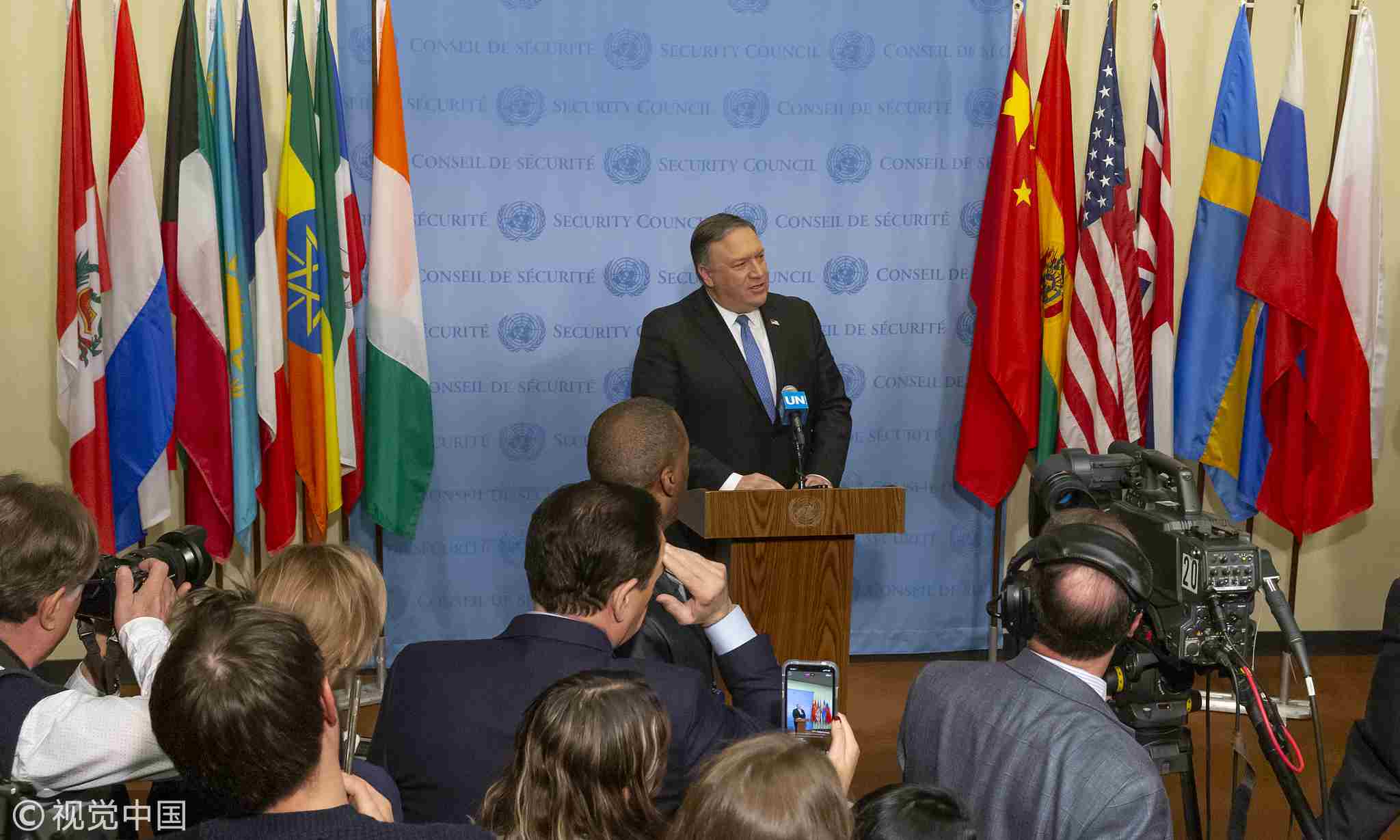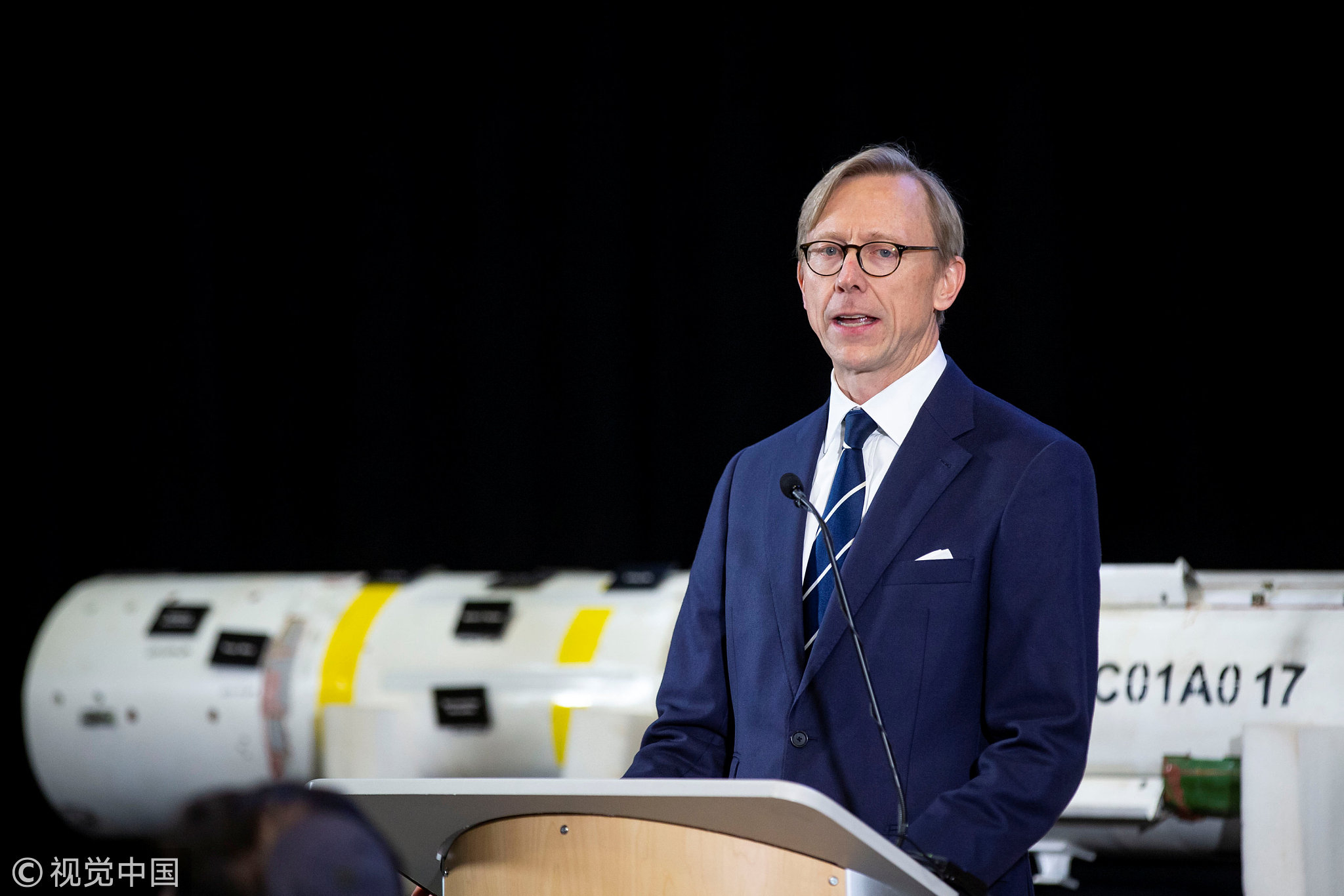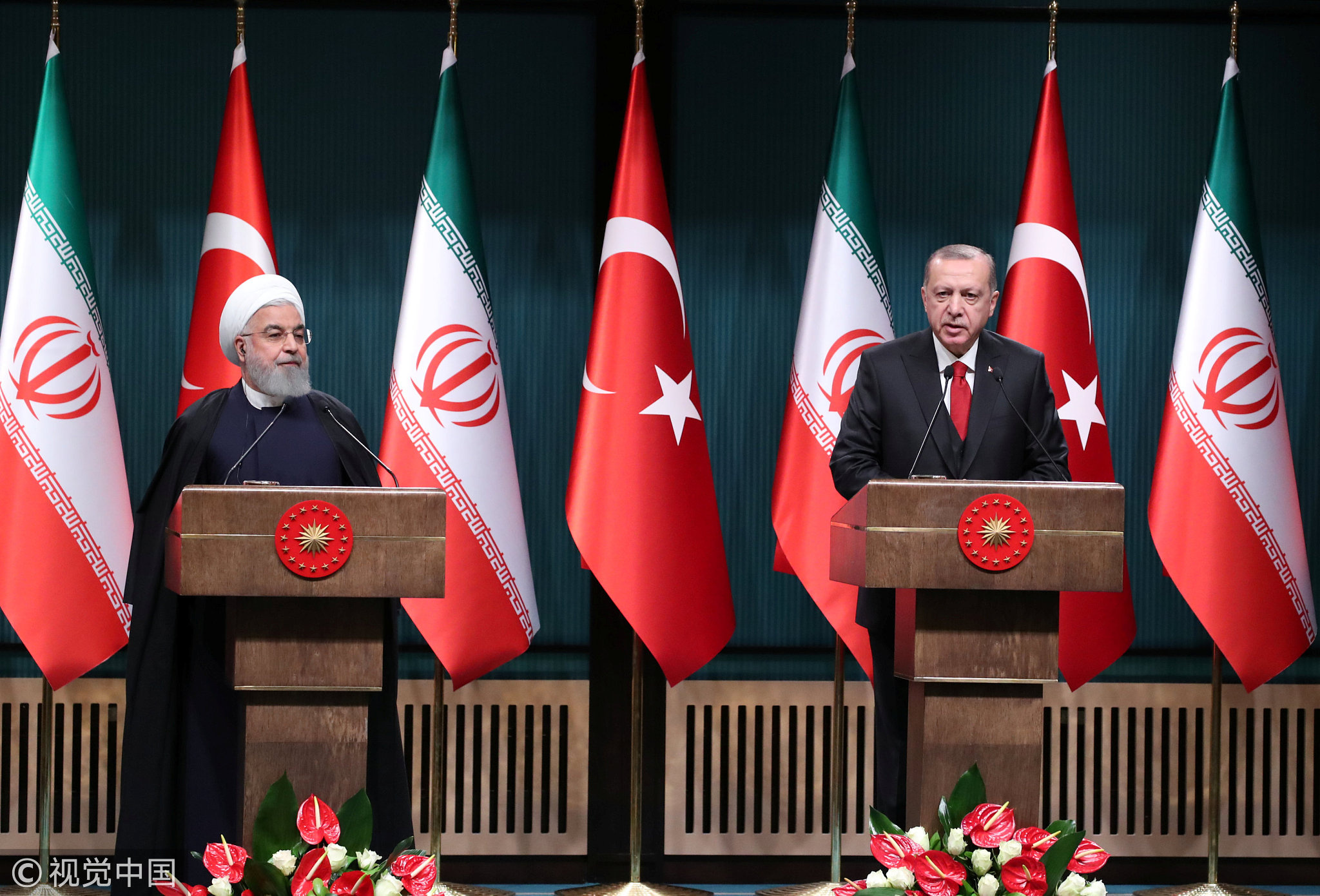
Opinions
16:51, 28-Dec-2018
Opinion: U.S. will stick to tough policy towards Iran
Updated
15:56, 31-Dec-2018
Li Weijian

Editor’s note: 2018 was an eventful year, with many historic moments that changed the fates of millions of people around the world. They were more than just narratives in the headline news but major twists and turns that shaped the world order in different dimensions. Among them, the chaos between the U.S. and Iran has cast shadows on the international community. Li Weijian, a research fellow at the Shanghai Institutes for International Studies and the vice president of the Chinese Association of Middle East Studies, shares his insights with CGTN.
U.S. President Donald Trump has taken a tough stance towards Iran since he took office, leading to a significant setback in the relationship between the two nations and raising the tension which had eased with the signing of the comprehensive Iran nuclear agreement. On May 8, 2018, Trump announced the withdrawal of the U.S. from the nuclear deal and the resumption of sanctions against Iran.
The U.S. cut off the international financing of Iranian banks and then severely restricted Iran's oil exports, causing many multinational companies to pull out from the country or terminate trade with it, resulting in growing economic losses for Iran. At present, the U.S. is putting pressure on European allies and countries in other regions to cut off all commercial ties with Iran.
The international community was in an uproar over the withdrawal of the U.S. from the nuclear deal, and the signatories, including the UK, France and Germany, questioned Trump's approach. In response, U.S. Secretary of State Mike Pompeo contributed a signed article entitled Confronting Iran: The Trump Administration's Strategy to the U.S. Foreign Affairs magazine that was published in mid-October in an attempt to defend Trump's Iran policy.

U.S. Secretary of State Mike Pompeo addresses the press after a Security Council meeting at UN Headquarters. /VCG Photo
U.S. Secretary of State Mike Pompeo addresses the press after a Security Council meeting at UN Headquarters. /VCG Photo
He said Trump announced his withdrawal from the deal because he believed it not only failed to prevent Iran from developing nuclear weapons but also allowed Iranian authorities to sow “a great deal of destruction and instability” in the Middle East. The deal did not protect the interests of the U.S. and its allies, nor did it make Iran a normal country, he argued. The upshot was the U.S. said it will take comprehensive measures to deal with Iran in order to achieve results that can replace the nuclear deal.
Pompeo's so-called measures refer to leveraging military might to impose extreme pressure in a way to force an opponent to engage in dialogue and negotiations with the U.S. and finally reach an agreement as dictated by the U.S. Since this has shown early success on the Democratic People's Republic of Korea (DPRK), the U.S. will continue to use this strategy against Iran. Specific measures mainly include the following:
For starters, it involves economic sanctions. The U.S. believes that economic sanctions are low in cost but can put great pressure on the Iranian regime. Therefore, it launched the second phase of sanctions on November 5 after announcing its first on Iran on August 7 this year. The U.S. also asked other countries to stop importing crude oil from Iran starting from November 4 and encouraged countries opposed to Iran's incumbent regime to join the sanctions.
Political deterrence is another tool. Trump once said that if Iran restarts its nuclear program or continues to engage in other related activities, the U.S. will take concrete measures to stop it resolutely. Trump also warned Iranian President Hassan Rouhani on Twitter in July to stop threatening the U.S. and said that if Iran dares to organize any attack that hurts U.S. personnel or facilities, the U.S. will respond quickly and decisively to protect American interests.

Brian Hook, U.S. Special Representative for Iran, speaks during a news conference at a military base in Washington, U.S., November 29, 2018. /VCG Photo
Brian Hook, U.S. Special Representative for Iran, speaks during a news conference at a military base in Washington, U.S., November 29, 2018. /VCG Photo
Besides, exposing "evil" deeds is also a key part of the U.S. actions against Iran. The Trump administration claimed it will continue to expose various bad behaviors of the Iranian regime, including exporting revolutions to other countries in the Middle East through proxy wars, attempting to subvert most Muslim countries, confronting the U.S. and Israel, restricting women's rights, regular arrests of minority religious figures and ethnic minorities, abuse of human rights and even illegal deprivation of human liberty. The aim is to incite Iranians' anger at the government and encourage them to rise up and overthrow the current government.
Dialogue and negotiation are also on the table. President Trump said he was open to negotiations with Iran. However, as with the DPRK policy, the U.S. will maintain high pressure on Iran to press for change. In May this year, the Trump administration proposed 12 conditions for negotiations, including asking Iran to completely stop uranium enrichment, preventing nuclear proliferation, releasing U.S. citizens detained in Iran and stopping the support of terrorism.
The U.S. claimed that if Iran can fulfill the above requirements and make a fundamental change in policy, both sides may reach a new comprehensive agreement; if not, Iran will pay a higher price.

Turkish President Tayyip Erdogan and his Iranian counterpart Hassan Rouhani hold a joint news conference after their meeting in Ankara, Turkey, December 20, 2018. /VCG Photo
Turkish President Tayyip Erdogan and his Iranian counterpart Hassan Rouhani hold a joint news conference after their meeting in Ankara, Turkey, December 20, 2018. /VCG Photo
However, it is thought that the reason why the U.S. withdrew from the Iran nuclear deal and restarted sanctions against Iran is not as grandiose as Pompeo said. Since taking office, Trump has worked with Israel to continuously portray Iran as the new and biggest threat in the Middle East. To a large extent, it has reflected his strong personal position of pro-Israel and anti-Iran and his aversion to the Iran nuclear deal signed by former U.S. President Barack Obama.
We have seen that over the years, the U.S. has frequently incited Saudi Arabia and other Arab countries to wrestle with Iran, successfully shifting the focus of attention of the international community away from the Palestinian issue. This helped to relieve Israel of pressure on the Palestinian issue, and the U.S. also took hundreds of billions of dollars in arms sales contracts and protection fees from Saudi Arabia and other Gulf countries.
Furthermore, one can find that the U.S. is constantly talking about Iran, and its intention has gone beyond the U.S.-Iran relationship itself. In fact, the U.S. is using Iran as a bargaining chip and a tool to force its allies to take sides.
To sum up, the U.S. will continue to pursue a tough policy towards Iran in the foreseeable future to force Iran to compromise on the one hand and continue to milk Saudi Arabia and other Gulf countries in the name of protecting regional security and strengthening its control over the region on the other.
However, judging from the international order and the development of the U.S. politics, Trump's policy is unsustainable. The world's major powers, including China, Russia and major European countries, still disagree with the U.S. on the Iran nuclear issue. It is very difficult for the U.S. to seek international support, and the domestic politics also determines that the Trump administration cannot invest more resources on the Middle East issues, including the Iran nuclear issue. Therefore, in the future, when the Trump administration's demands are met to a certain extent, it's possible to see some moderate easing of tension between the U.S. and Iran.
(If you want to contribute and have specific expertise, please contact us at opinions@cgtn.com.)

SITEMAP
Copyright © 2018 CGTN. Beijing ICP prepared NO.16065310-3
Copyright © 2018 CGTN. Beijing ICP prepared NO.16065310-3